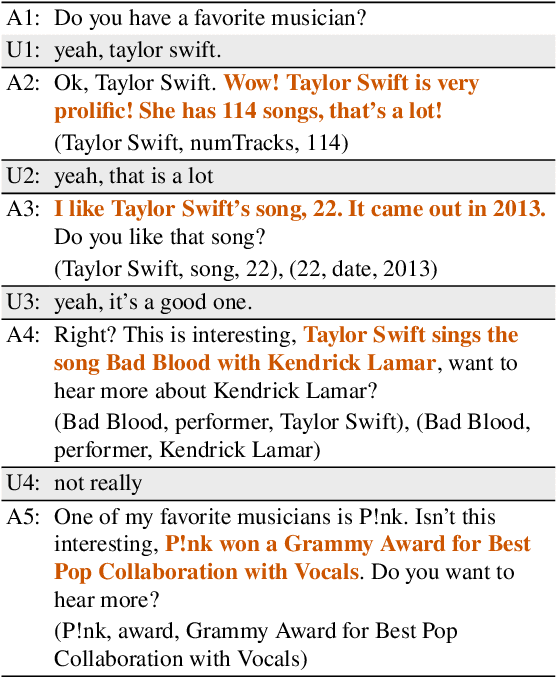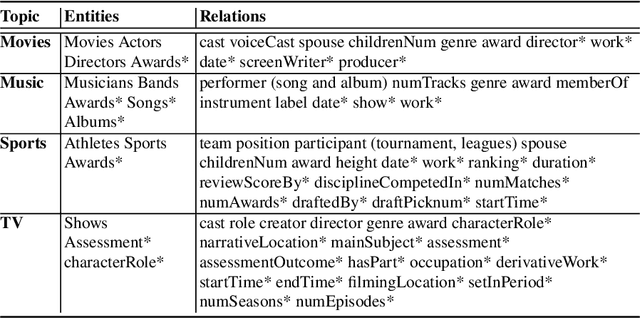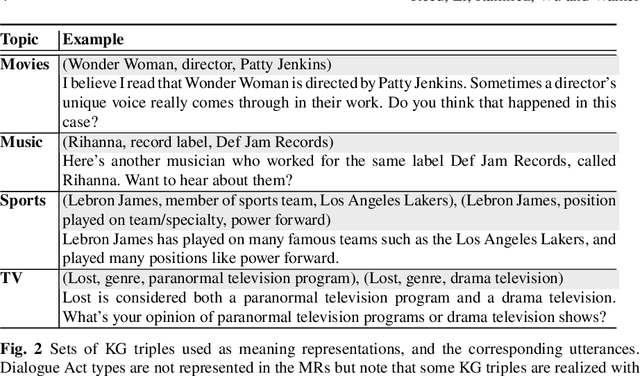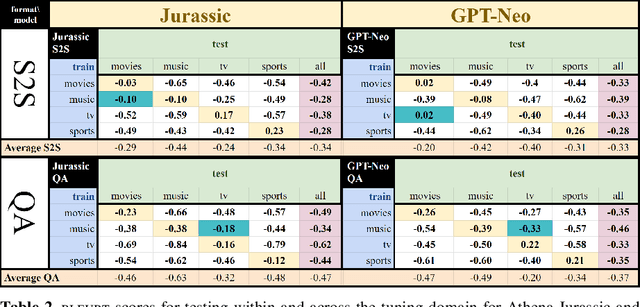Liren Wu
Natural Language and Dialogue Systems Lab, University of California, Santa Cruz
Controlling Personality Style in Dialogue with Zero-Shot Prompt-Based Learning
Feb 08, 2023



Abstract:Prompt-based or in-context learning has achieved high zero-shot performance on many natural language generation (NLG) tasks. Here we explore the performance of prompt-based learning for simultaneously controlling the personality and the semantic accuracy of an NLG for task-oriented dialogue. We experiment with prompt-based learning on the PERSONAGE restaurant recommendation corpus to generate semantically and stylistically-controlled text for 5 different Big-5 personality types: agreeable, disagreeable, conscientious, unconscientious, and extravert. We test two different classes of discrete prompts to generate utterances for a particular personality style: (1) prompts that demonstrate generating directly from a meaning representation that includes a personality specification; and (2) prompts that rely on first converting the meaning representation to a textual pseudo-reference, and then using the pseudo-reference in a textual style transfer (TST) prompt. In each case, we show that we can vastly improve performance by over-generating outputs and ranking them, testing several ranking functions based on automatic metrics for semantic accuracy, personality-match, and fluency. We also test whether NLG personality demonstrations from the restaurant domain can be used with meaning representations for the video game domain to generate personality stylized utterances about video games. Our findings show that the TST prompts produces the highest semantic accuracy (78.46% for restaurants and 87.6% for video games) and personality accuracy (100% for restaurants and 97% for video games). Our results on transferring personality style to video game utterances are surprisingly good. To our knowledge, there is no previous work testing the application of prompt-based learning to simultaneously controlling both style and semantic accuracy in NLG.
Jurassic is All You Need: Few-Shot Meaning-to-Text Generation for Open-Domain Dialogue
Nov 10, 2021



Abstract:One challenge with open-domain dialogue systems is the need to produce truthful, high-quality responses on any topic. We aim to improve the quality and coverage of Athena, an Alexa Prize dialogue system. We experiment with few-shot prompt-based learning, comparing GPT-Neo to Jurassic-1, for the movies, music, TV, sports, and video game domains, both within and cross-domain, with different prompt set sizes (2, 3, 10), formats, and meaning representations consisting of either sets of WikiData KG triples, or dialogue acts. Our evaluation uses BLEURT and human metrics, and shows that with 10-shot prompting, Athena-Jurassic's performance is significantly better for coherence and semantic accuracy. Experiments with 2-shot cross-domain prompts results in a huge performance drop for Athena-GPT-Neo, whose semantic accuracy falls to 0.41, and whose untrue hallucination rate increases to 12%. Experiments with dialogue acts for video games show that with 10-shot prompting, both models learn to control dialogue acts, but Athena-Jurassic has significantly higher coherence, and only 4% untrue hallucinations. Our results suggest that Athena-Jurassic produces high enough quality outputs to be useful in live systems with real users. To our knowledge, these are the first results demonstrating that few-shot semantic prompt-based learning can create NLGs that generalize to new domains, and produce high-quality, semantically-controlled, conversational responses directly from meaning representations.
* Final Conference Proceedings version
 Add to Chrome
Add to Chrome Add to Firefox
Add to Firefox Add to Edge
Add to Edge